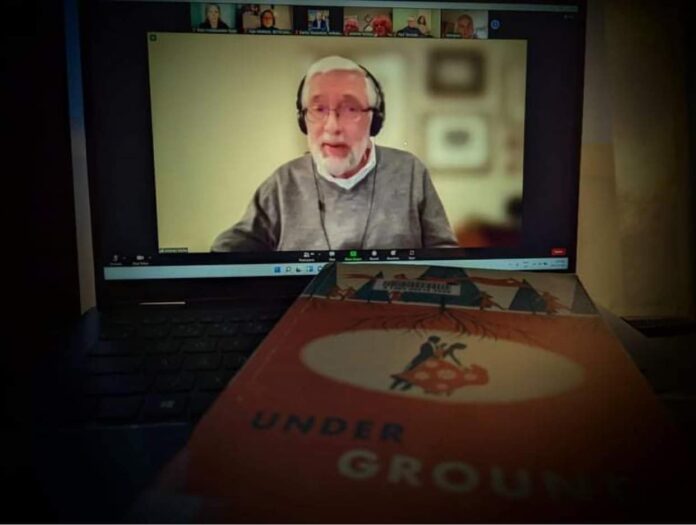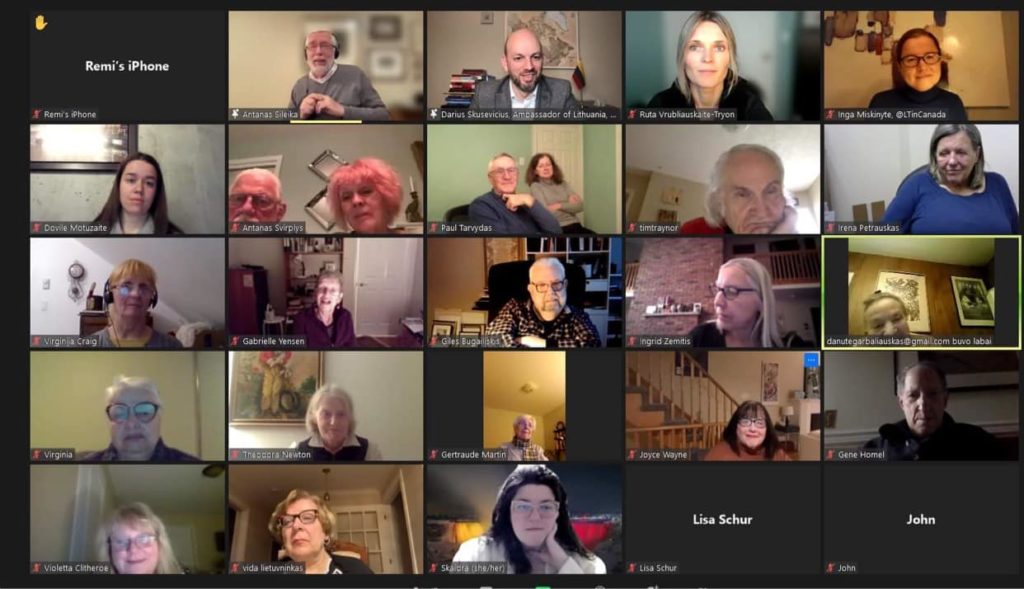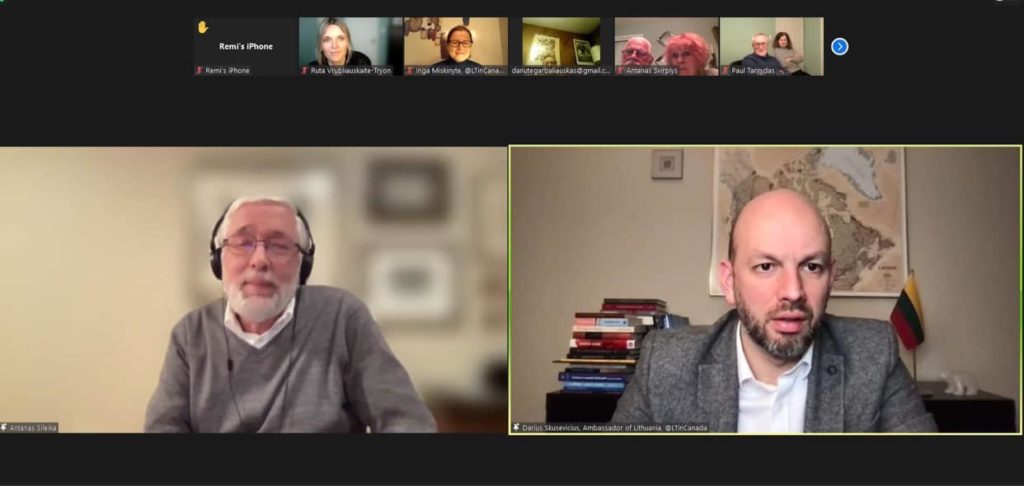
The Lithuanian embassy in Canada hosted an online meeting with author Antanas Šileika on February 9, as part of the ES Book Club series.
The screenshot shows some of the Lithuanian Canadian participants from Ottawa, Vancouver, Montreal, Edmonton, Toronto and other locations to hear Šileika‘s thoughts on literature and its connection to history. Ambassador Darius Skusevičius led the discussion. Embassy aide Inga Miškinytė presented Šileika, his work, and his community involvement, noting how important his writing is in promoting various aspects of Lithuania‘s history, traditions and culture to English-speaking readers.

This discussion centred around the novel Underground, about the post-war Lithuanian resistance and the price its members paid for their determination to oppose the Soviet occupation of Lithuania. The author spoke about the sources which inspired him to take up this theme, and the process of gathering historical material to create the novel. He also read a short excerpt from the book. Šileika emphasized that although he based the main character in his novel, Lukas, on the real partisan leader Juozas Daumantas-Lukša, his purpose was not to chronicle his life. A novel is not a history book, he said, it is meant to engage a reader‘s imagination and emotions, to feel the tension in the situations the author describes, and how the character reacts. History books, on the other hand, document an extensive chronology of events.

In his quest to discover the rationale behind this underground war which no one expected to win, the author turned to the memoirs and diaries of known partisans and examined KGB documents. He met with former partisans Povilas Pečiulaitis – Lakštingala, Juozas Jakavonis – Tigras, and visited bunkers and battle sites to experience the drama of those struggles and the men who participated in them – former high school students, teachers, soldiers and ordinary young men from rural areas.
An interesting question from a listener was whether the novel had been translated into Russian, and whether the author had spoken to any Russian readers. It had not reached Russian readers, he answered, but it is available in Mandarin and Italian. Other questions centred on how Lithuanian society was affected by the unsuccessful resistance, awaiting help from the West that never materialized, and the role of women in the resistance.
Other questions were about Šileika‘s work in general, such as why a writer born and educated in Canada would choose to write about Lithuania. He answered that his entire generation had been raised as Lithuanians, to identify with that culture. For young people that was not always attractive, and at the time seemed pointless, with parents and grandparents talking about a non-existent country which no one here knew about. But once the independence movement began, the seeds planted by our parents sprouted – the issue became very important, and a whole generation rediscovered Lithuania. For Šileika it was a catalyst for delving into Lithuanian history. He understood the necessity for parents to maintain that hope, for Lithuanian diplomats to continue to promote the cause of freedom for their occupied country, although many had lost hope. Essentially they were the only ones in the West, in the free world, who did not allow the victims of Communism and its dangers to be forgotten. Šileika‘s life in Canada has informed how he writes about Lithuania. Being neither too close nor too far, his view is different from that of native Lithuanian writers. He has seen that readers at book fairs and other events recognize and understand the Lithuania that he describes.
Šileika also shared his plans for his next creative endeavours. Two new novels will be appearing in the near future. One is also about the resistance, involving the life of well-known Lithuanian children‘s author Kostas Kubilinskas. As a young poet, he chose the path of betrayal in order to keep pwriting. The novel speaks about the conflict between creativity and politics, talent and adaptation, and the cost of betrayal.
Adapted from an article in Lithuanian by Sigina Katkauskaitė



























